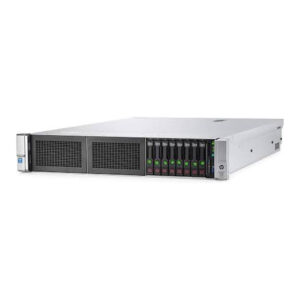
Introduction:
Quantum computing stands at the forefront of technological innovation, leveraging the principles of quantum mechanics to redefine the landscape of computation. Unlike classical computers, which operate on bits, quantum computers utilize qubits, allowing for the exploration of countless possibilities simultaneously. While still in its nascent stages, quantum computing holds the promise of transforming various industries, from drug discovery to finance. This essay delves into the fundamentals of quantum computing, its potential applications, and the challenges that researchers face in harnessing its full capabilities.
Understanding Quantum Computing:
At the heart of quantum computing lies the principles of quantum mechanics, a branch of physics that governs the behavior of matter and energy at the smallest scales. Classical computers use bits, which exist in one of two states – 0 or 1. In contrast, quantum computers use qubits, which can exist in multiple states simultaneously due to a phenomenon known as superposition. This allows quantum computers to process vast amounts of information in parallel, potentially solving complex problems much more efficiently than classical computers.
Another key principle is entanglement, where qubits become interconnected and the state of one qubit instantaneously influences the state of another, regardless of the distance between them. This phenomenon enhances the computational power of quantum computers by enabling faster and more efficient information transfer.
Potential Applications:
Drug Discovery:
Quantum computing holds tremendous potential in revolutionizing drug discovery. The intricate nature of molecular interactions and simulations required in drug development can be handled more effectively by quantum computers. They can explore numerous molecular configurations simultaneously, accelerating the identification of potential drug candidates and significantly reducing the time and resources required for research.
Materials Science:
The exploration and design of novel materials with specific properties could benefit immensely from quantum computing. Researchers can simulate and analyze the behavior of materials at the quantum level, leading to the discovery of new materials with applications in various industries, including electronics, energy storage, and manufacturing.
Finance:
Quantum computing has the potential to reshape the landscape of financial modeling and optimization. Complex financial algorithms and risk assessments, which are currently time-consuming for classical computers, could be performed at unparalleled speeds by quantum computers. This capability may lead to more accurate predictions, improved portfolio optimization, and enhanced risk management in the financial sector.
Optimization Problems:
Quantum computers excel at solving optimization problems, a class of problems prevalent in logistics, scheduling, and operations research. Their ability to explore multiple solutions simultaneously allows for quicker and more efficient optimization, leading to improvements in supply chain management, transportation logistics, and resource allocation.
Cryptography:
While quantum computing poses a potential threat to traditional cryptographic methods through its ability to solve certain mathematical problems exponentially faster, it also offers new cryptographic techniques based on quantum principles. Quantum key distribution, for example, ensures secure communication by leveraging the unique properties of quantum states.
Challenges in Quantum Computing:
Despite the promising applications, quantum computing faces significant challenges that hinder its widespread adoption:
Quantum Decoherence:
Qubits are highly susceptible to environmental influences, leading to a phenomenon known as quantum decoherence. This instability can cause errors in computations and poses a major challenge in maintaining the coherence of qubits over extended periods.
Error Correction:
Developing effective error-correction mechanisms for quantum computers is crucial. Quantum states are fragile and prone to errors, making it challenging to create stable and reliable quantum computers. Quantum error correction algorithms are actively being researched to address this issue.
Quantum Hardware:
Building scalable and robust quantum hardware is a significant obstacle. Researchers face challenges in creating stable qubits, maintaining coherence, and minimizing environmental interference. Advancements in quantum hardware are essential for the practical implementation of quantum computers.
Standardization and Software:
The field lacks standardized hardware and software architectures, hindering the development of a unified quantum computing ecosystem. Efforts are underway to establish industry standards, making quantum computing more accessible and compatible across different platforms.
- Ethical and Security Concerns: As quantum computers advance, concerns about their potential impact on existing encryption methods and ethical considerations surrounding the development of powerful computational technologies are emerging. Addressing these concerns is crucial for responsible advancements in quantum computing.
Conclusion:
In conclusion, quantum computing represents a paradigm shift in computational capabilities, harnessing the principles of quantum mechanics to perform calculations that were once deemed impossible for classical computers. The potential applications span across diverse fields, from revolutionizing drug discovery and materials science to transforming financial modeling and optimization. However, significant challenges remain in achieving the full potential of quantum computing, such as overcoming quantum decoherence, developing effective error-correction mechanisms, and establishing standardized hardware and software architectures.
As researchers and scientists continue to delve into the complexities of quantum mechanics, the future of quantum computing holds both exciting possibilities and formidable challenges. The synergy between advancements in quantum hardware, software, and theoretical frameworks will pave the way for a new era of computational power, reshaping industries and expanding the boundaries of what we can achieve in the realm of information processing.




